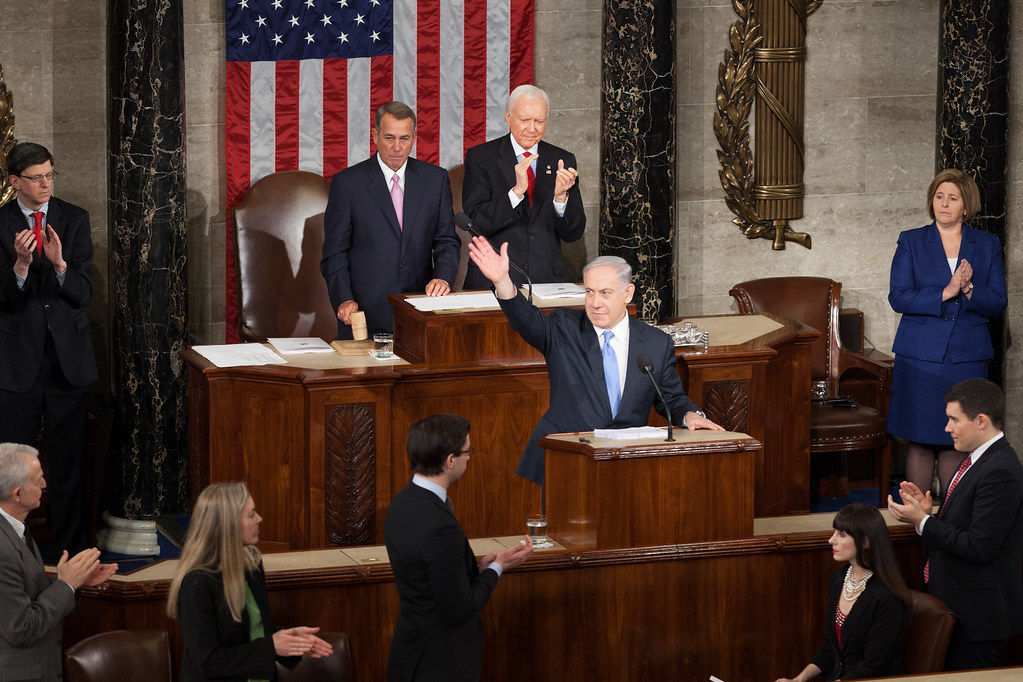November 16th, 2024, Madison Square Garden. Ultimate Fighting Championship #309. UFC superstar Jon Jones drops heavyweight legend Stipe Miocic with a spinning back kick to the rib cage, and referee Herb Dean calls a stoppage to the bout. Jones scans the crowd for a specific guest and finds who he is looking for—President Donald J. Trump. Jones proceeds to do the “Trump Dance,” a dance where one moves their elbows up and down while recreating the classic smug facial expressions that the 47th President is known for. A few minutes later, while being interviewed by podcaster and UFC commentator Joe Rogan in the fighting octagon, Jones acknowledged Trump’s presence, stating that he wanted to “give a big big thank you to President Donald Trump for being here tonight.” Jones would make an Instagram post five days later rejoicing on the moment, captioning a photo with Trump: “One of the proudest moments of my career @ufc @realdonaldtrump.”
Athletes expressing political views, or in some cases, protesting social issues they feel are important, is not a new concept. It can be traced back decades ago in ways that may not have been intentional but spoke volumes nonetheless, such as Jesse Owens winning gold in four events for the United States in front of Adolf Hitler in the 1936 Berlin Olympics or Jackie Robinson breaking the race barrier in baseball by joining the Brooklyn Dodgers in 1947. At the 1968 Mexico City Olympics, sprinters Tommie Smith and John Carlos raised their fists to protest the mistreatment and segregation of African Americans in the US. At that same event, Czechoslovak gymnast Vera Čáslavská turned her head away from the Soviet flag during a medal ceremony at the 1968 games in protest of the USSR’s invasion of her home country. In 1980, 61 countries, including the US, boycotted the USSR-hosted Olympics in protest of the invasion of Afghanistan that had taken place the year before.
However, fast forward to the current day, and it seems that athletes are less fixed on bringing light to social issues and more concerned with endorsing a presidential candidate of their choice. It’s no wonder that many sports fans find it frustrating when athletes, who already enjoy immense wealth and influence, openly align themselves with equally powerful figures, especially in the polarizing realm of politics. For a lot of viewers, sports are an escape—a break from the stresses of everyday life, including the divisive political climate. Seeing a favorite athlete use their platform to endorse an elite figure can feel out of place and even alienating—whether it’s San Francisco 49ers defensive end Nick Bosa storming a post-game interview wearing a MAGA hat or Lebron James sharing an Instagram post in support of former Vice President Kamala Harris.
Sophomore Lester Shamos expressed his opinion on the controversy: “Politics have become oversaturated because it’s taken away from the escapist feel sports possess. Sports are supposed to be something where anyone no matter their political stance, but with increasing amounts of political clothing and dance creeping its way into sports, it makes everything more complicated. I’m not saying athletes shouldn’t have a political view, but their view can be expressed in many ways off the field.”
When Jackie Robinson broke the race barrier or when Tommie Smith and John Carlos raised their fists in protest, those acts carried a sense of purpose that transcended personal gain—they spoke to universal struggles for equality and justice. Presidential endorsements, meanwhile, can feel out of touch and self-serving. Since the 20th century, when professional sports began to popularize, they have seemed to be one of the few places where people could escape the stress of the world and watch some of the most athletically gifted human beings compete. All athletes who participate in sports in the United States no doubt hold the right to freedom of speech, but it still can be jarring for sports to be clouded by politics.

























